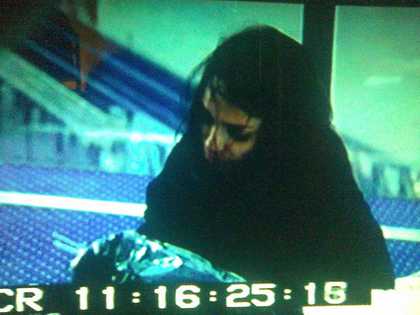That First Camera No Longer Exists is a new performance by London-based writer and filmmaker C.S. Leigh that references the history of the Nouvelle Vague and the aesthetic and practical concerns of film making. As is often the case in Leigh's work, the performance invokes a difficult episode that has gone missing from the historical record, and thus requires fiction to be restored.
The origins of the performance begin with a letter written by Jean-Luc Godard to Jean-Pierre Beauviala, the movie camera maker at Aaton in Grenoble, published in the May 1979 issue of Les Cahiers du Cinema guest edited by Godard. Godard was looking to commission a new high quality 35mm camera he could operate himself and that would be small enough to keep in the glove compartment of his car, always at the ready for the unplanned shot.
Four years later, in another issue of Les Cahiers du Cinema, Godard and Beauviala discussed the process by which they attempted to make the camera. The conversation is as much an autopsy of the abandoned camera as of their relationship; it is also a portrait of the frustrating and at times melancholy way films are made, at once artistic and mechanical, overseen by the all-powerful auteur while carried out by an army of builders, technicians and electricians. Godard and Beauviala talk of dreams thwarted, hopes dashed and egos bruised – like any other story of a couple who decide to separate and sit down for one last talk before breaking up.
C.S. Leigh's films include Far From China 2001, starring Marianne Faithful and Steven Mackintosh, with original music by Suede; Process 2004, with Beatrice Dalle and Guillaume Depardieu, featuring an original score written and composed by John Cale; I Was Jack Goldstein 2007–11; See You At Regis Debray 2008; and A Letter to H 2013, his new film.
The performance is part of C.S. Leigh's exhibition In Camera at the Exhibition Research Centre, Liverpool John Moores University, from 18 March – 3 May 2013.

